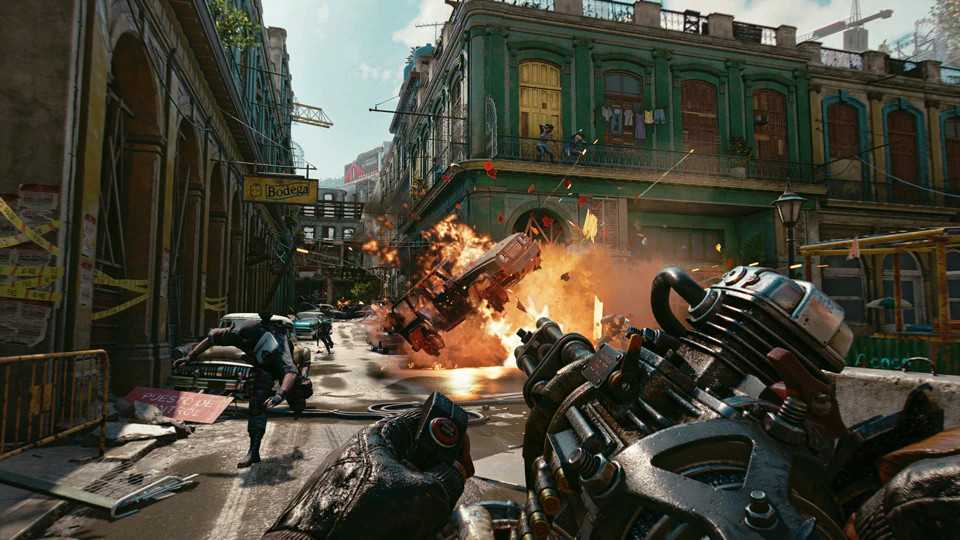Ubisoft has reportedly rebooted its ambitious Far Cry extraction-based multiplayer shooter, codenamed Project Maverick. The news, broken exclusively by Insider Gaming’s Tom Henderson on March 4, 2025, signals a significant shift for the long-running open-world franchise as Ubisoft seeks to redefine its approach to multiplayer gaming. This reboot comes amid a challenging period for the company, raising questions about the future of the Far Cry series and its place in an increasingly competitive gaming landscape.
A Bold Vision Interrupted
Originally conceived as a standalone multiplayer experience separate from the mainline Far Cry 7 (codenamed Blackbird), Project Maverick was set to take players to the rugged wilderness of Alaska. The game promised a PvPvE (player versus player versus environment) extraction-shooter experience, pitting players against each other, hostile soldiers, wild animals, and the harsh elements of nature. The concept aimed to blend the survivalist ethos of Far Cry with the high-stakes tension of extraction shooters like Escape from Tarkov or Hunt: Showdown.
First reported in October 2023 by Insider Gaming, Project Maverick had evolved from an earlier unified project (codenamed Talisker) that was later split into two distinct titles: the single-player Far Cry 7 and this multiplayer spin-off. Early leaks suggested a 2025 release window, with the game incorporating modern movement mechanics like tactical sprinting, sliding, and vaulting, alongside a new inventory and looting system shared with Far Cry 7. However, it now appears that Ubisoft has hit the reset button, scrapping much of the initial development to pursue a revised vision.
Why the Reboot?
While Ubisoft has not officially commented on the reboot, the decision likely stems from a combination of internal and external pressures. The company has faced a turbulent few years, marked by disappointing game launches, such as Star Wars Outlaws in 2024, and the cancellation of its free-to-play shooter XDefiant, set to shut down in June 2025. These setbacks, coupled with layoffs and financial struggles, have put Ubisoft under scrutiny to deliver successful titles that resonate with players.
The extraction-shooter genre, while popular, is notoriously difficult to crack. Ubisoft’s previous foray into this space, Rainbow Six Extraction (2022), received praise for its mechanics but failed to maintain a lasting audience, with support ending less than a year after launch. Posts on X and reports from Insider Gaming suggest that internal doubts about Project Maverick emerged following XDefiant’s failure, with some questioning whether chasing trends like extraction shooters aligns with Ubisoft’s strengths or the Far Cry brand’s identity.
The reboot could also reflect a desire to refine the game’s direction. Far Cry has traditionally thrived on its single-player, open-world formula, offering players freedom to explore, conquer outposts, and take down charismatic villains. Transitioning this into a multiplayer extraction framework—where survival, looting, and competition take center stage—represents a radical departure. Ubisoft may be rethinking how to balance the series’ roots with the demands of a live-service multiplayer title.
What’s Next for Project Maverick?
Details about the rebooted version of Project Maverick remain scarce. It’s unclear whether the Alaskan setting or core extraction-shooter premise will persist, or if Ubisoft is pivoting to an entirely new concept. The original vision of players battling both nature and each other in a harsh wilderness was ambitious, but the reboot suggests Ubisoft is either doubling down on perfecting this idea or exploring a different path to ensure the game stands out in a crowded market.
Meanwhile, Far Cry 7, the next mainline installment, is reportedly still on track for a 2026 release. Rumors indicate it will feature a time-based mechanic—giving players 24 real-world hours (72 in-game hours) to rescue their kidnapped family from a cult—marking its own break from tradition. The shared development history between Far Cry 7 and Project Maverick hints that some elements, like the updated movement and looting systems, might still tie the two projects together, even post-reboot.
Fan Reactions and Industry Context
The news has sparked mixed reactions among Far Cry fans. Some see the reboot as a sign of Ubisoft’s commitment to quality, hoping it leads to a polished and innovative multiplayer experience. Others, however, express skepticism about the franchise’s direction, with posts on X highlighting concerns over Ubisoft’s track record with live-service games. The cancellation of XDefiant and the lukewarm reception to past spin-offs like Far Cry: New Dawn have left some fans wary of further experimentation.
In the broader gaming industry, the reboot reflects a cautious approach to multiplayer trends. Extraction shooters remain a niche but growing genre, with titles like The Cycle: Frontier and Dark and Darker vying for attention. Ubisoft’s decision to restart Project Maverick could be an attempt to avoid repeating past mistakes and deliver a game that not only capitalizes on this trend but also feels distinctly Far Cry.
Looking Ahead
As of March 4, 2025, Ubisoft’s Far Cry franchise stands at a crossroads. With Far Cry 7 aiming to shake up the single-player formula and Project Maverick undergoing a reboot, the company is betting big on reinventing the series for a modern audience. Whether this gamble pays off remains to be seen, but the reboot underscores Ubisoft’s recognition that it can’t rely on past successes alone.
For now, fans will have to wait for official announcements to learn more about Project Maverick’s new direction. Until then, the Far Cry faithful can only speculate about what lies ahead in the wilds of Alaska—or wherever Ubisoft takes this rebooted adventure next. One thing is certain: the stakes have never been higher for the future of this iconic franchise.






